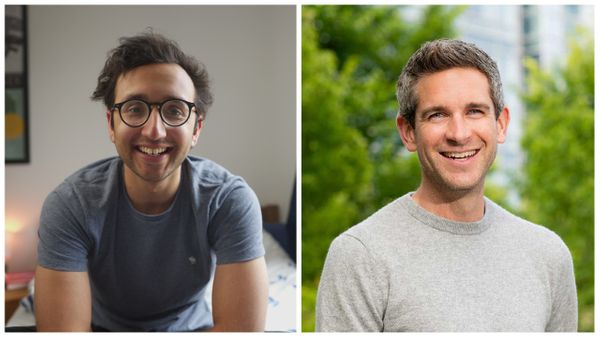Table of contents
John Zeratsky is the co-author of the book Make Time. He worked in the tech industry for almost 15 years, which included working at Google, where he designed the YouTube Channels platform, and subsequently as a design partner at venture-capital firm GV, where he helped develop the ‘sprint’ process – an approach to product design that has been adopted by numerous companies. In this conversation, he shares the philosophies behind his book, Make Time, as well as some key insights into goals, habit formation and why we should actively inconvenience ourselves on a regular basis.
Here are some of the highlights from our discussion:
"Getting all the stuff done, is not the same as doing the ‘right’ stuff".
A mission and vision are very different. A mission is the underlying why. It’s the ‘why do I care about this and what change do I want to see? A vision is a mental picture of specifically what that mission would look like if I pursued that opportunity and was successful which means its solution oriented.
We all need a framework or system for how we are going to spend our time. If we don’t someone else will decide for us. John is author of the book Make Time which is based on a 4-part framework:
- Highlight – Working out what is the one thing that you want to bring your best focus and energy to in any given day.
- Laser – Whilst highlight is more about offence, laser is more about defence in terms of how to manage your attention. The philosophy in this section is to try to understand the mechanisms behind the modern-day distraction engines so that you don’t have to rely on willpower to resist checking stuff.
- Energise – We’ve all experienced the struggle that ‘if you’re body’s not well, your brain doesn’t work’ but our culture doesn’t encourage us to think of our bodies and brains as being one system so energise is all about simple ways to take care of yourself so that you have energy to maintain high levels of efficiency and effectiveness.
- Reflect – This section is all about looking back daily and making notes on what worked for you and what you could change to improve your day tomorrow.
Everybody struggles with infinity pools – those apps that draw us in and keep us hooked for hours. The philosophy from the book is that because those become habitual actions, you cannot rely on willpower alone to counteract that thought; when it’s habits versus willpower the habits are going to win. This can be frustrating if we have formed a habit around something that we don’t want to be doing.
GTD is a productivity system whereas Make Time is set up as a focussing system. It helps you figure out what really matters to you and gives you a set of tools to focus on that particular thing with the emphasis on avoiding distraction and also building energy.
We should think of goals as directions rather than destinations. With destination-based goals, we cannot win – if you don’t get there, you’re dissatisfied because you didn’t get there but if you do get there then you’re left thinking – what now? Directional goals are helpful because you can translate them into the processes and actions that you’ll need every day.
The idea of inconveniencing yourself is not about never being efficient – it’s about questioning the universal assumption that you should outsource everything you possibly can. For example, cooking for yourself rather than ordering a takeaway can help to make that boundary between work time and personal time more distinct.
We owe it to ourselves to pay attention to our time and how we spend it because it’s finite and precious. We’re used to being critical and analytical with our own projects but when it comes to our time we seem to forget this. If we can give ourselves a structure to stop, pause and reflect, that becomes the mechanism for analysing what is / what is not working for us and then experimenting with other strategies that might be more optimal.
“You shouldn’t do what I say – this is where so many people go wrong. They look to experts, gurus etc and they ask what they should do, how do they do it. The reality is, we are all so different. There are some universal truths, but the most important thing is to establish your own system and believe that your time and attention and energy are yours to design and experiment with. You cannot just do what you’re expected to do – you have to take ownership of it. Make your time your own.”

